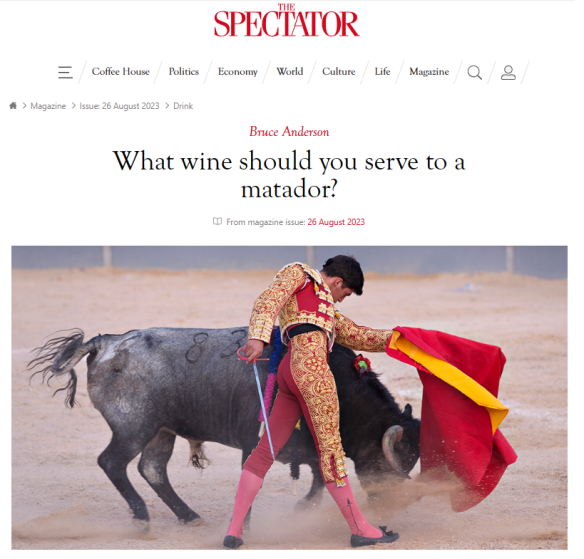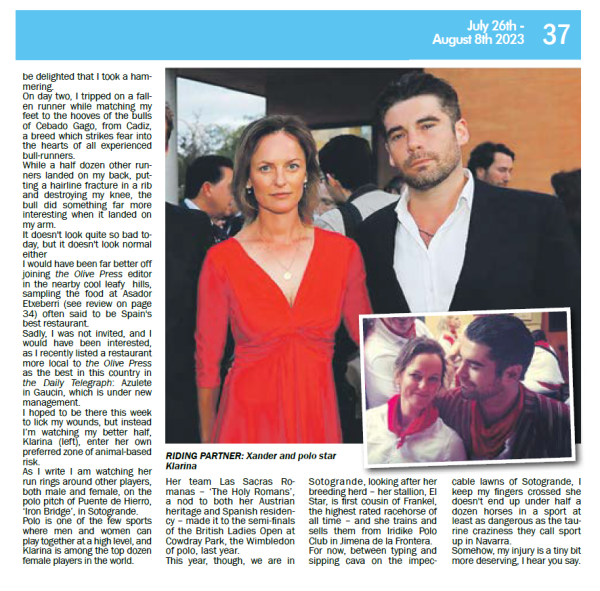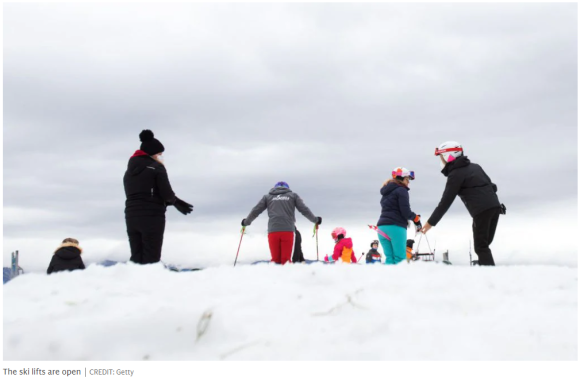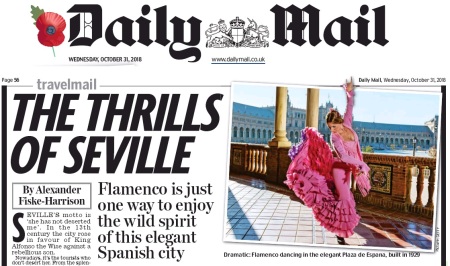An amusing article about me in the oldest – and most successful in current affairs – magazine in the English language, The Spectator, founded in 1828.
Bruce Anderson godfather-patron of the Conservative Party, friend of Prime Ministers (and part of the No.10 Downing Street Policy Unit under Margaret Thatcher) and former political editor of ‘The Speccie’. He interviewed me at The Travellers’ Club, the oldest gentleman’s club on Pall Mall in St. James’, London. Our club is the haunt of diplomats and spies, explorers and mercenaries. I once stayed there and dined with the Papal Nuncio, the Archbishop appointed as Ambassador from the Vatican to the UK, and breakfasted the next day with the Colonel of the Special Boat Service (the SBS is what they modelled the Navy Seals on, for my American readers.) AFH

Original article online here
THE SPECTATOR
Bruce Anderson
What wine should you serve to a matador?
26 August 2023
We were talking bulls. A friend of mine, Alexander Fiske-Harrison, is a remarkable character who can claim at least two distinctions. First, he must have been about the worst-behaved boy in the modern history of Eton College. He claims that this is an understatement and that he heads the role of infamy since the days of Henry VI.
He was certainly put ‘on the Bill’ – that is, for a disciplinary interview with the headmaster – on 68 occasions. So he was fortunate that corporal punishment had been abolished before he arrived, though his career of rapscallionry was possibly not the strongest argument for its demise.
 He must have come close to expulsion. But there was apparently a feeling that Fiske-Harrison would make his mark in the world. And those who argued in that vein might now feel vindicated, because Alexander became a matador.
He must have come close to expulsion. But there was apparently a feeling that Fiske-Harrison would make his mark in the world. And those who argued in that vein might now feel vindicated, because Alexander became a matador.
He insists that this is a slight overstatement and that he is only partially qualified, not the full Escamillo. But he did kill a bull in a ring: impressive enough for me. He is also the first Etonian ever to hold that honour. If not the full Hemingway, he has written well on bullfighting. He also runs with the bulls at Pamplona and other towns: whence a remarkable story which I have mentioned here before. Continue reading




